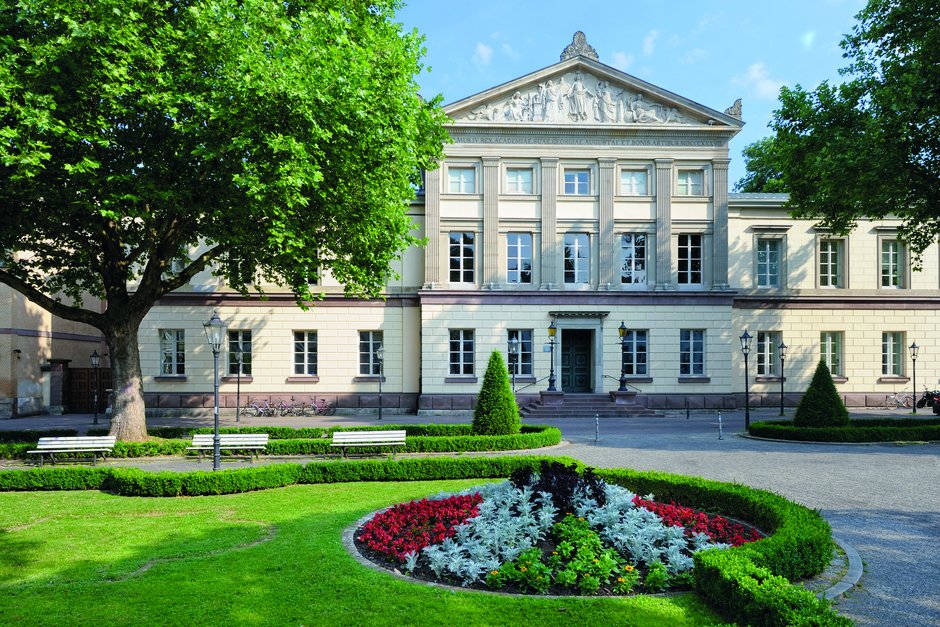Location Göttingen
Energy research in Göttingen is carried out as basic research in the areas of energy transformation on surfaces and geosciences as well as applied research on renewable raw materials and social science issues. Energy research in the respective disciplines is embedded in the institute, department and faculty structures as well as in various (joint) projects.

Core topics
The research topics of energy research in Göttingen represent a key focus in two of the university's three overarching research goals: “Understanding Energy, Information, and Life” and “Building a Sustainable Future”. They arise from the many years of activities at the site and complement the applied research questions in the efzn from the perspective of basic research with a wide range of topics and methods.
In the field of molecular and materials science, energy conversion processes and dynamic processes on surfaces are investigated at the molecular level, including with regard to processes that play a crucial role in heterogeneous catalysis and photocatalysis, photovoltaics and fuel cells. The focus of the research is the investigation of energy conversion on surfaces using the latest laser, molecular beam and ultra-high vacuum technologies. This research is embedded in the International Center for Advanced Studies of Energy Conversion (ICASEC) as well as in various individual and collaborative research projects in the faculties of Chemistry and Physics.
The energetic use of renewable agricultural and forestry raw materials requires consideration and compliance with economic, ecological and social standards. The holistic approach, including a technology assessment from ecological and economic perspectives, aims to formulate recommendations for action in the interests of the sustainable development of biomass cultivation. This focus area offers very good networking opportunities for the working groups involved with production technology, economic and ecological references. At the Institute for Sugar Beets Research at the University of Göttingen, for example, the potential of the sugar beet crops for energy production is being investigated by deriving specific breeding goals and determining requirements for the production system.
In energy research in the field of hydrogeology of georeservoirs, flow, heat, mass transport and geomechanical processes in deep georeservoirs are investigated with the aim to quantify their storage capacity for fluids (hydrocarbons, CO2, etc.) as well as their energy content (heat) and to predict future system states under operational usage conditions.
The term “social sciences energy research” can be used to summarize research from the fields of economics, social sciences and law. A thematic focus of the Göttingen scientists is the interdisciplinary research into decentralized energy production from renewable sources. In addition to the agricultural, engineering and natural science research in the efzn, social science, psychological, economic and legal issues are primarily addressed here.